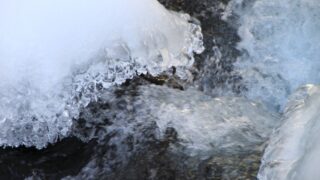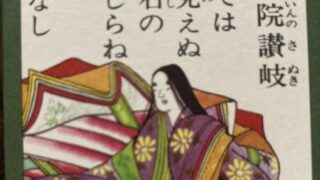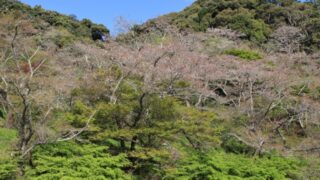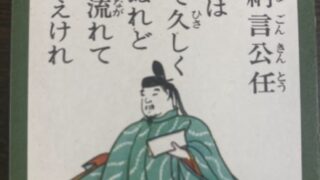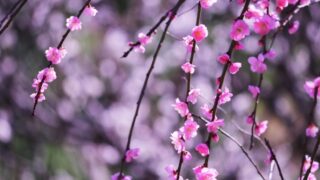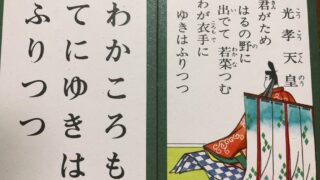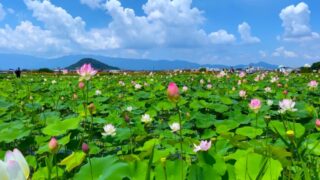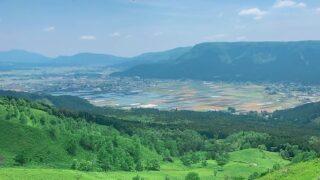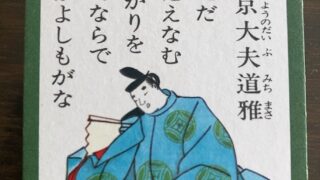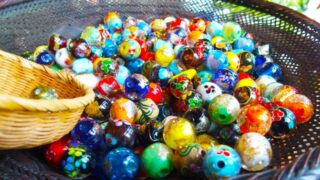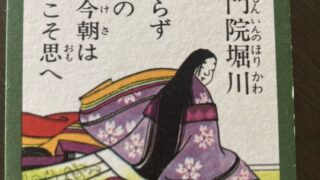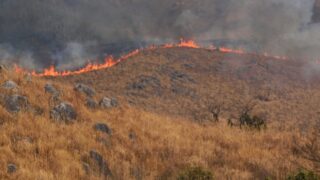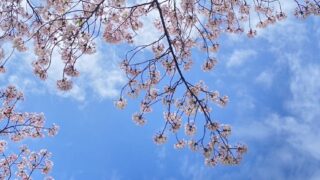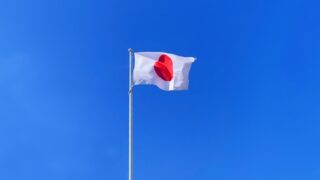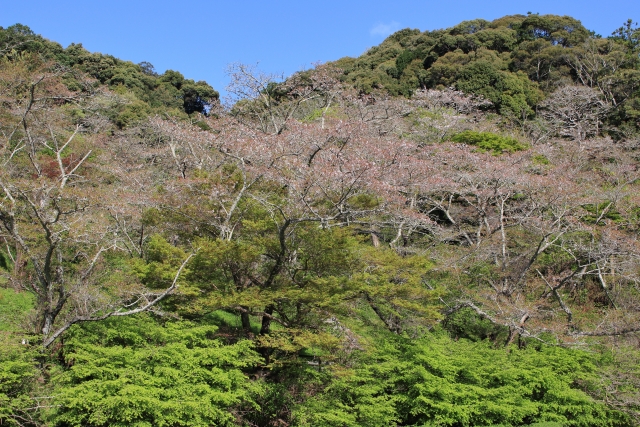桜の歌です。日本と言えば、桜ですね。私の家の近所ではまだ桜は咲いていませんが、もう咲き始めたところもあるようです。
This is a poem about cherry blossoms. Speaking of Japan, cherry blossoms are the most popular. In my neighborhood, the cherry blossoms have not yet bloomed, but I heard that in some places they have already started to bloom.
高砂の 尾上の桜 咲きにけり 外山の霞 たたずもあらなむ
権中納言匡房 (1041-1111)
百人一首 七十三番 春
後拾遺和歌集
ごんちゅうなごん まさふさ
ひゃくにんいっしゅ しちじゅうさんばん
ごしゅういわかしゅう
かな
たかさごの おのうへのさくら さきにけり とやまのかすみ たたずもあらなむ
「おのうへ」は「おのうえ」と読みます。
言葉の意味
| 高砂の | 高く積もった砂の | of sand piled high |
| 尾上の桜 | 山頂の桜 | Cherry blossoms at the top of the mountain |
| 咲きにけり | 咲いたなあ | It’s in bloom |
| 外山の霞たたずもあらなむ | 近い山の霞がたたないでほしい | I hope the haze of the nearby mountains doesn’t appear |
「高砂の」は、「高く積もった砂の」という意味ですが、ここでは「遠くの高い山の」という意味で使われています。
”Takasago no” means “high piles of sand,” but here it is used to mean “high mountains in the distance.”
「霞」は「霧」と同じで、空気中の水蒸気が冷やされて水滴になる現象です。「霧」が発生すると、目の前や遠くの景色がよく見えなくなります。英語で「fog」です。「霞」と「霧」はどちらも同じ現象ですが、「霞」は春にしか使いません。
”Kasumi” is the same as “kiri” and is a phenomenon in which water vapor in the air is cooled to form water droplets. When kasumi occurs, it isn’t easy to see clearly in front of you or the distance. In English, it is called “fog.” Both “kasumi” and “kiri” are the same phenomenon, but “kasumi” is used only in spring.
現代語訳
あの山の上に桜の花が咲いたなあ。あの桜を見ていたいから、近くの山に霞が立たないでほしいなあ。
Cherry blossoms bloom on top of that mountain. I hope the haze doesn’t appear on the nearby mountains so that I can enjoy watching the cherry blossoms.
桜の季節は雨がよく降ります。そして、まだ少し寒いので、霞がよくかかります。春の山はよく霞がかかって、白っぽく見えます。春の短い間にしか咲かない桜、霞に邪魔されることなく、見ていたいですね。
The cherry blossom season often brings rain, and because it’s still a bit cold, haze is common. The mountains in spring often have a haze, making them appear whitish. Since cherry blossoms only bloom in spring, I want to watch them without being disturbed by the haze.
「なあ」
日本語、特に古典の説明を読んでいると、文の終わりに「なあ」という言葉がよく使われているのに気づくと思います。
「なあ」は、いろんな場面で使われますが、特に独り言をいう時によく使われます。ちょっと感動した時、つらい時のような、心が動く時や、願望を表す時に使うことも多いです。
When you read some Japanese, especially explanations of the Japanese classics, you will notice that the word “なあ” is often used at the end of sentences.
It is used in a variety of situations, but it is especially common when talking to oneself. It is often used when you are moved by an emotion, when you are going through a difficult time, or when you are expressing a wish
・独り言をいう時 When talking to yourself
| きれいだなあ。 | How beautiful! |
| 今日は疲れたなあ。 | I’m tired today. |
| 今日は寒いなあ。 | It’s cold today. |
| 田中さんは元気ないなあ。今日はどうしたのかなあ。 | Mr. Tanaka doesn’t seem to be in good spirits. I wonder what’s going on today. |
| ここまで片付けたし、もう、いいかなあ。 | Now that I’ve cleared this up, I guess it’s time. |
・願望を表す時 When expressing a desire
| もっと桜が見たいなあ。 | I want to see the cherry blossoms more. |
| いいなあ。 | I’m jealous. |
| あの車、欲しいなあ。 | I want that car. |
・アニメやマンガでは、次のような表現を相手に言うことがありますが、乱暴に聞こえるので、慣 れないうちは、あまり使わない方がいいと思います。
In anime and manga, the following expressions are sometimes said to the other person, but since they sound rude, it is better not to use them if you are not used to them.
| お前、本当にだめだな。 | You’re really no good. |
| お前がやったんだな。 | You did it, didn’t you? |
| じゃあ、またな。 | Well, see you later. |
今日もここまで読んでくれてありがとうございました。春の花が楽しみですね。
令和六年三月二十六日

